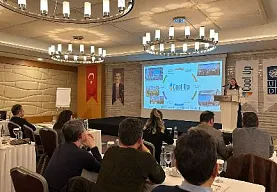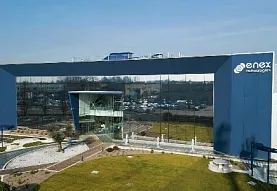Can Tho, a key city in Viet Nam’s Mekong Delta, is facing increasing heat challenges, with cooling demand expected to rise by 34% by 2030 and heatwaves projected to become six times longer by the end of the century. In response, a consultation workshop was held on 9 January 2025 to finalize the city's Urban Cooling Action Plan (UCAP) and assess priority projects aimed at mitigating urban heat.
The workshop, hosted by the UNEP Cool Coalition and the Global Green Growth Institute (GGGI) at the Muong Thanh Luxury Can Tho Hotel, gathered 38 stakeholders from the Viet Nam Department of Climate Change, local agencies, academia, and the private sector. As part of the “Sustainable Urban Cooling in Viet Nam Cities” project, the event focused on integrating sustainable cooling measures into urban planning.
The UCAP outlines strategies such as expanding shaded areas through vegetation, enhancing urban ventilation, and incorporating passive cooling designs at the building level. Proposed solutions include reflective roofs, heat-resistant building materials, and optimized spatial layouts to reduce heat retention and improve airflow. These interventions are tailored to Can Tho’s urban structure and socio-economic conditions.
A Pre-Feasibility Study reviewed at the workshop assessed key projects like the New Urban Area and Centralized IT Park, emphasizing energy-efficient and climate-resilient designs. Measures such as shaded streets and passive cooling techniques aim to lower greenhouse gas emissions while improving urban livability.
Participants engaged in discussions on integrating cooling solutions into local policies and aligning them with Viet Nam’s climate commitments and the United Nations Sustainable Development Goals, particularly Goal 11 on sustainable cities and Goal 13 on climate action. The workshop also served as a platform for knowledge-sharing, with insights from Can Tho University and community leaders shaping the proposed strategies.
Consensus was reached on the UCAP recommendations, setting the stage for formal approval by Can Tho’s Department of Natural Resources and Environment. Technical and governance aspects were refined to ensure feasibility and potential scalability to other cities in Viet Nam.
Can Tho’s approach is expected to serve as a model for sustainable urban cooling across the region. As part of the UNEP Cool Coalition’s broader initiative, the city’s experience could inform similar strategies in Tam Ky and beyond, contributing to long-term climate resilience.
Source





